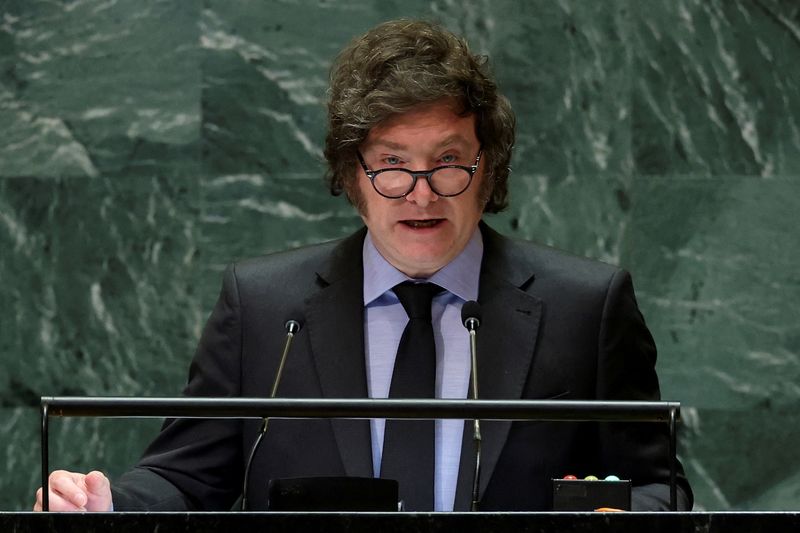BUENOS AIRES (Reuters) – Argentina’s lower house of Congress will vote on Wednesday on plans opposed by the government to hike funding for public universities, a ballot which will test the limits of libertarian President Javier Milei’s legislative power.
Milei in September vetoed a bill to update university funding in line with the country’s triple-digit inflation rate, the world’s highest. Thousands of people have since demonstrated against his cuts to education and healthcare.
“We will insist on upholding the University Financing Law that this Congress voted in favor of and that society has demanded in mass,” congresswoman Danya Tavala, a member of center-left opposition party UCR, wrote on social media platform X.
Milei’s far-right party holds a minority in Congress, but has made alliances with conservative lawmakers seeking to prevent the opposition from gathering the two-thirds majority needed to reverse a presidential veto and ratify the law.
Milei argues the law would jeopardize a fiscal balance he has promoted to tackle the country’s long-running economic crisis. He has pledged to veto any law which threatens this.
If the lower chamber overturns Milei’s veto, the bill would pass to the Senate where it would likely get approval.
Argentina’s health, pension and education spending have been the hardest-hit by Milei’s public cuts, while university salaries have lost around 40% of their purchasing power due to rocketing inflation.
Under Milei’s austerity drive, high inflation has started to slow and the state’s finances improve, but the country is deep in recession and poverty rates have surged over 50%.

